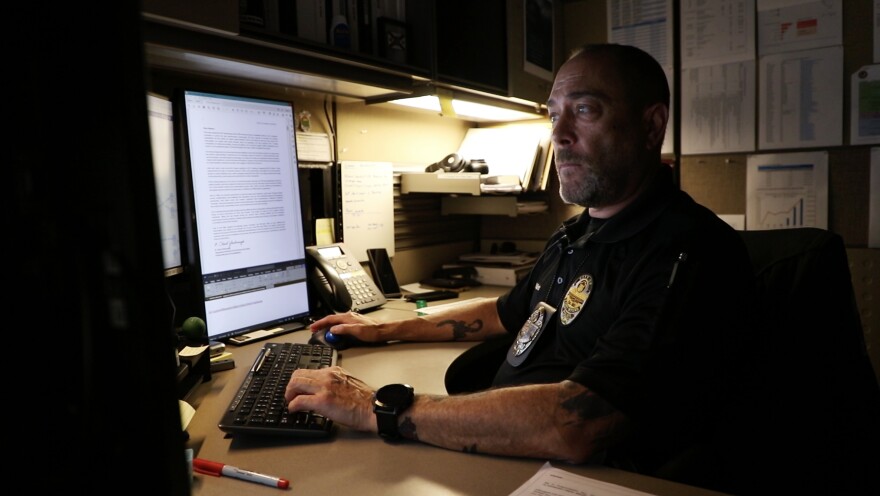The FBI reports a staggering increase in crimes linked to cryptocurrency fraud across the country resulting in $9.3 billion in losses in 2024.
The federal report also shows the number of crimes linked to Crypto ATMs has skyrocketed — up 99 percent in 2024 compared with the previous year.
Florida — across the state and right here in Southwest Florida — is not immune.
Florida ranks third in the country for the most reported crypto fraud related cases.
Fort Myers Police Economic Crimes Investigator David Dietz says all law enforcement agencies are impacted by what is now the fastest growing crime trend in the nation.
Deitz is sounding the alarm, warning everyone to be aware of crypto ATM scams as officers try to catch up to criminals using virtual currency to steal your real cash.
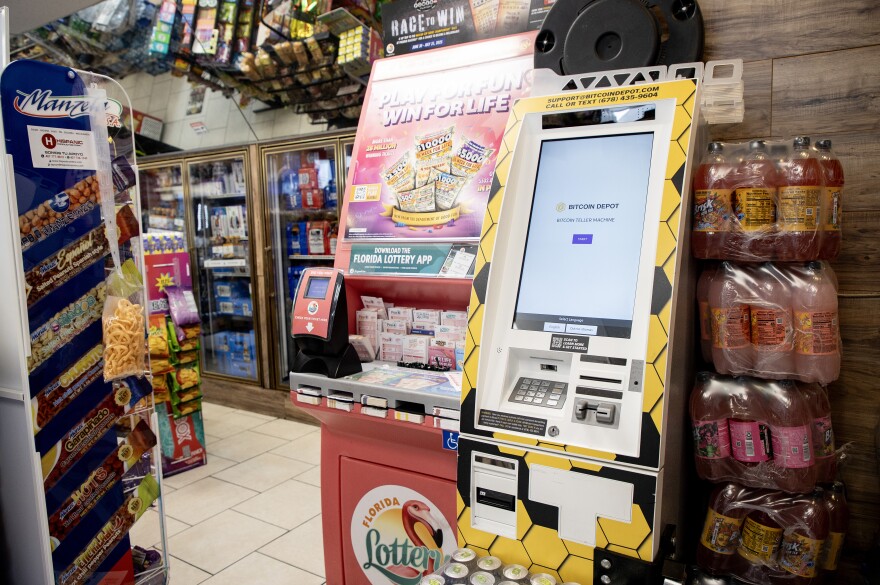
“As you can see the cryptocurrency ATM appears very similar to a regular fiat [government-issued] currency ATM you would find in most stores,” Dietz said.
On a crusade
Dietz is on a crusade against crypto ATM crime. He has been the primary economic crimes investigator for seven years, but within the past 18 months has been focusing efforts with two civilian investigators on the explosion in crypto-related crime in Fort Myers.
"The problem is we have crypto ATMS all over the city, somewhere around 30 give or take. We have scammers that are overseas primarily, that are contacting victims telling them they are in violation of failing showing up to court. And they have a warrant for their arrest The only way to evade being arrested, is that they will have to go to a crypto ATM, pay a fine. That fine they tell they usually have to pay is somewhere between $5,000 to $15,000," he said.
The victim is then told to take the receipt, go to the courthouse, show the receipt to the clerk, and then the warrant will be null and void.
"The problem is no law enforcement agency will ever call you, tell you have a warrant for your arrest for missing court, not showing up for jury duty, or anything like that, and tell you to go to a crypto ATM, to pay the fine," Dietz said. "That is not how it works. We don't do that."
The Fort Myers police investigator explained it further: "The scammers will call and give the name of somebody from a police department, so they'll say 'I'm Detective David Dietz with the city of Fort Myers Police Department, contacting you about this warrant.' They’ll give a badge number. They will even give them a fictional case number. They make it sound very professional. They give them all the things you would expect to hear from law enforcement in order to get that individual under duress to move those funds immediately. They'll sometimes say that we have officers around the corner if you cannot pay this money, they will come and arrest you now."
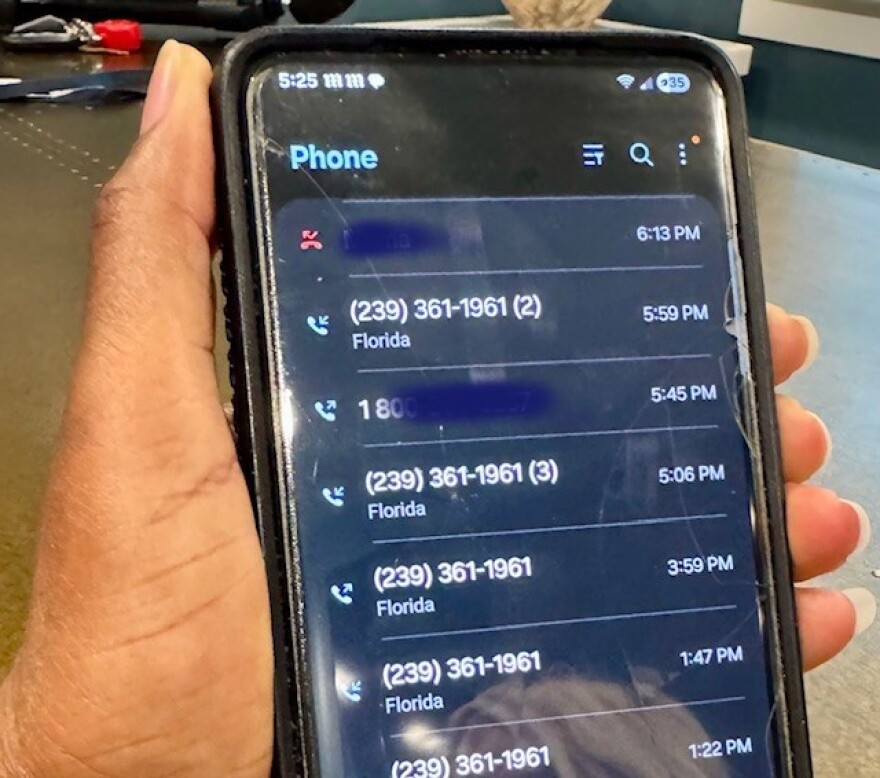
Victim scammed of $15,000
One female victim in Fort Myers, a doctor who didn't want to be directly identified, first received a call from a 239 area code from someone identifying himself as a Lee County Sheriff's Deputy. Having a 239 number is not proof of anything. Phone numbers are easily spoofed, meaning the caller's number displayed on your phone is not necessarily their actual number.
She said she normally would not answer a call she did not recognize, but she thought it could be related to her work as she was driving home.
“He said that I missed a court date. Where I was supposed to appear as a witness in a court case. And that he was extending a courtesy call to me from the courts, because I had never been in trouble before," she said. "But he needed to let me know that I had two charges pending against me, one for failure to appear and one for contempt of court and that I needed to get it straightened out or I would be jailed," she said.
She said she was shocked because she has never been in trouble and could not understand why she would be jailed for missing a court date, especially when she was supposed to have been a witness, not even a defendant.
"I asked for clarification. I asked for clarification several times," she said. "He gave me the supposed case numbers associated with me. He let me know I was under mobile escort, which was like being detained even thought I was not in cuffs, not in actual police custody. He then transferred me to his captain. Another male, who then instructed me I would need signature verification to prove I did not sign for a subpoena for court, so I then would not have to go to jail. "
The victim said she was happy to do that.
"I was ready to go to the Sheriff's Office. But he said no, first I had to pay my fines. The charges were associated with 80 to 120 days in jail, 30 hours of community service for charge, and $7,500 fine per charge."
She said that was when the "captain" let her know that she needed to pay the fines, and that if then her signature was cleared, and it was obvious she did not sign for the subpoena, she would get her money back.
"That is when he instructed me to let him know my mileage, how long it would take me to get to a bank," She said.
The victim said that the "captain" then told her she would be also reimbursed for her mileage if it was proven a mistake had been made with her signature on the subpoena.
"He told me I had to stay on the phone with him the whole time. That I was not to talk to anyone else. That if I came into contact with law enforcement of any kind, I would be arrested on site and taken to jail," she said. "Part of me was thinking, 'No, this can't be right.'"
Victim was 'terrified'
But the bigger part of her was terrified.
"Because I do not want to go to jail. I have never been to jail . My family has never been to jail," she said. "It was a lot of money, and I just wanted to do what I needed to do what I needed, to make it go away. I would have had to report it to the licensing board. I felt like it would damage my reputation. That stuff gets put on the internet and it is there forever. I was thinking oh my goodness I am going to have to get a mug shot that I might need to get fingerprinted. and I had; I had an emotional breakdown in my car at the bank," she said.
She shows the messages she says she received from the caller.
“He sent me this, actually there were two of them from United States District court with this official-looking seal on them and it it was a mobile contact order.”
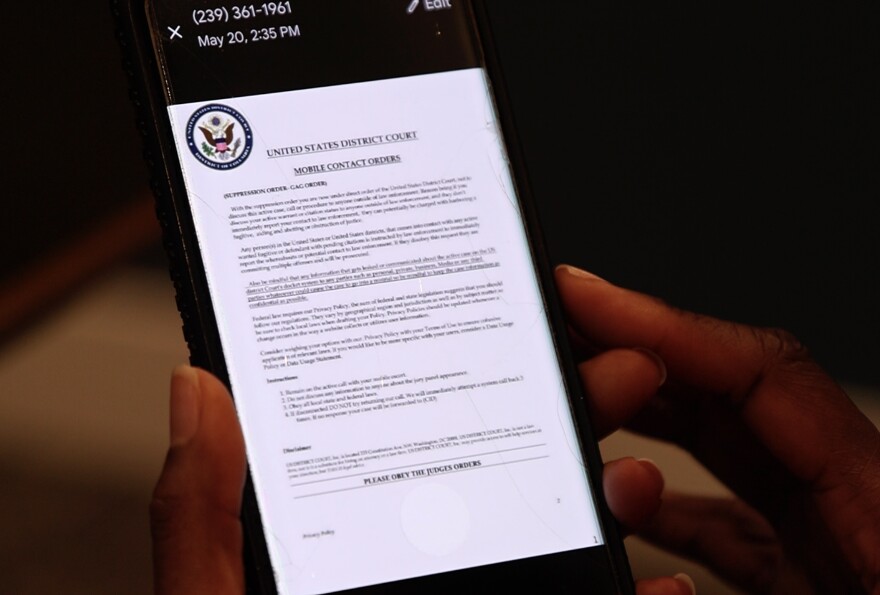
She said the other document he texted to her was reportedly a gag order or suppression order which she was told didn't allow her to talk to anyone during the mobile escort process.
Despite her doubts, she was terrified at the thought of being arrested.
“I was crying but I couldn't catch my breath. It was like I was having a panic attack," she said.
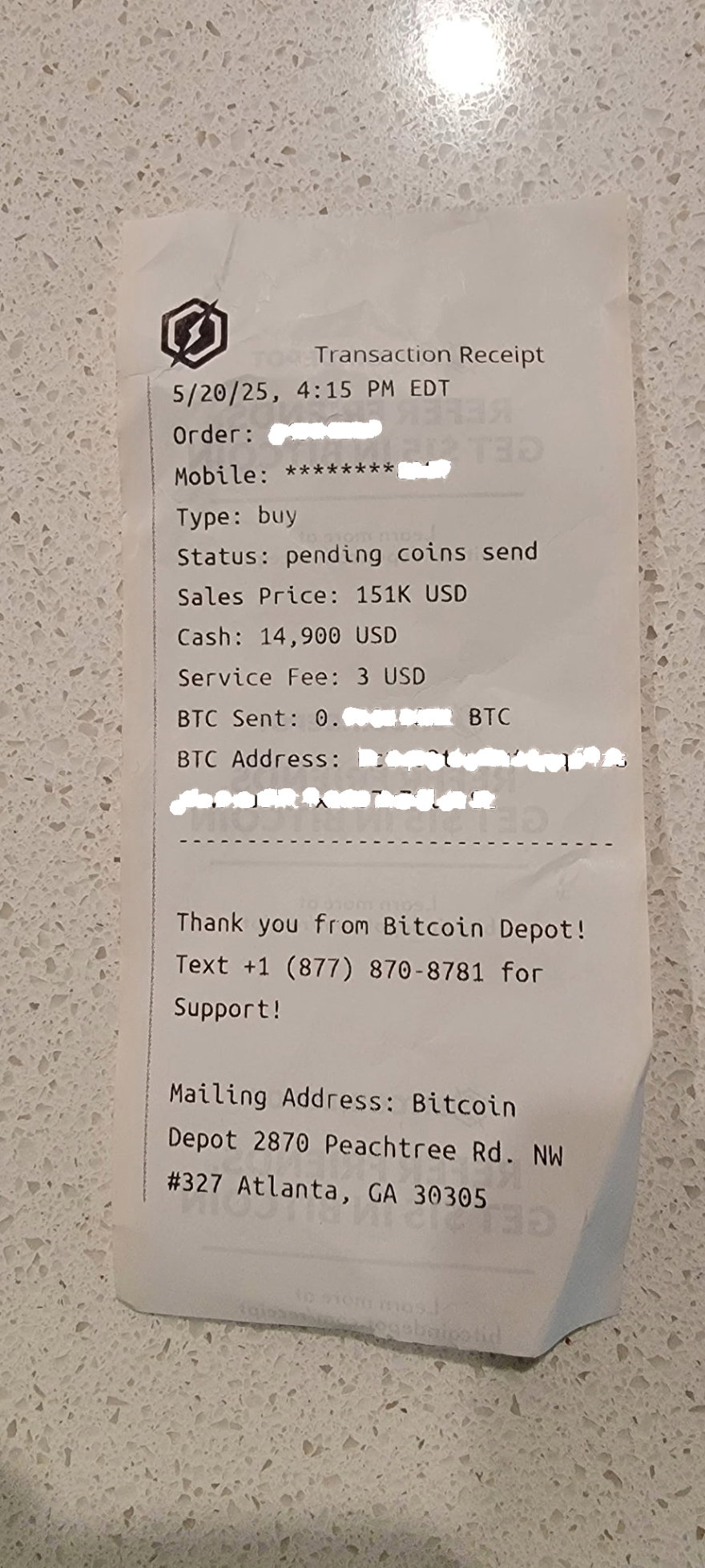
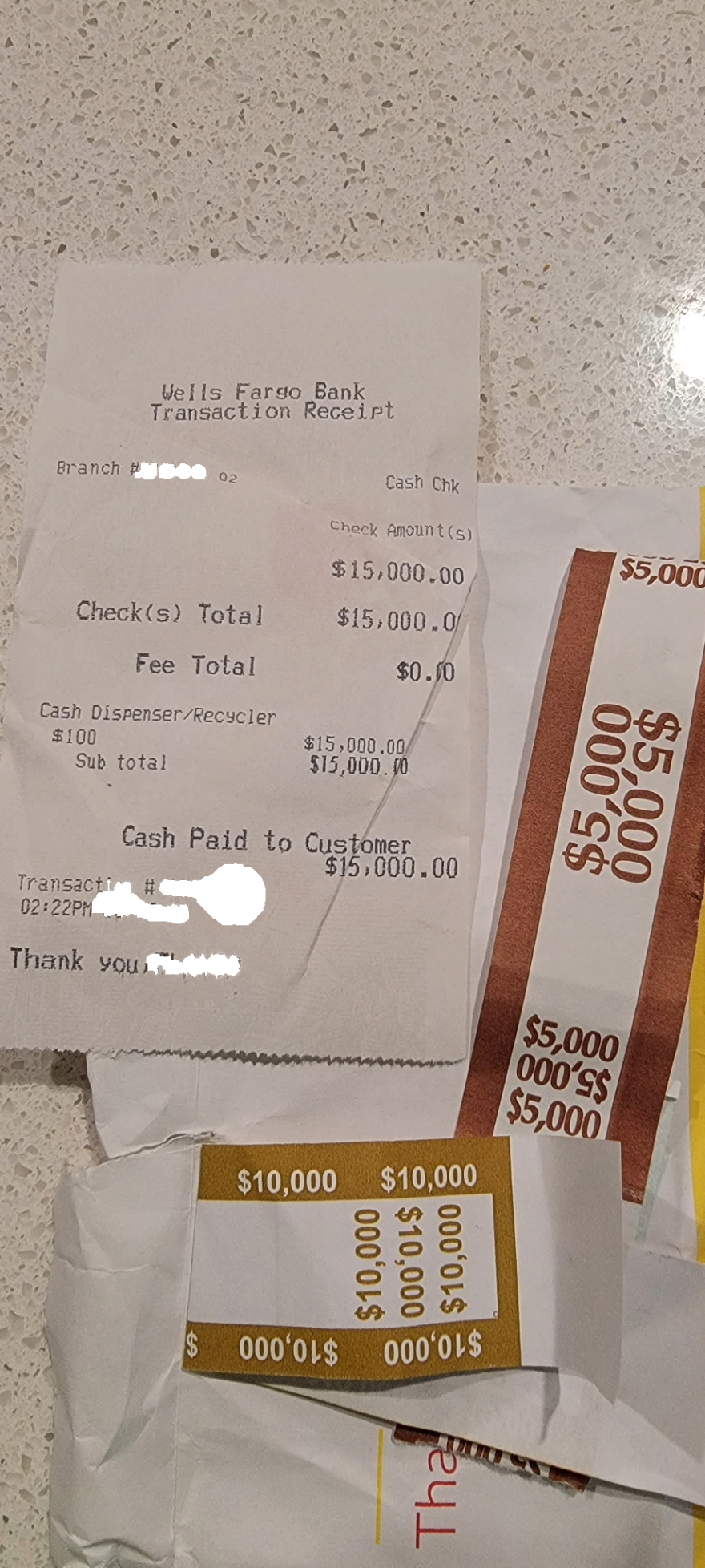
She scrambled to get a total of $15,000 in cash from her Wells Fargo bank account.
At the first Wells Fargo in downtown Fort Myers, the teller asked her if she was OK because she had been crying and appeared under duress. The victim said she denied that she was under duress. The teller gave her tissues but no cash. The victim says the teller informed her the branch did not have that much cash to fulfill her request.
The caller told her to drive to another branch in Cape Coral. She stayed on the phone with him pursuant to the mobile escort order she believed was active.
She ultimately got the cash and continued to follow the caller's directions.
He then told her to take the $15,000 in cash to deposit into a U.S. Department of the Treasury account ATM. She said she told him the machine said, 'Bit Coin." He said, "But look at the USDT icon. That stands for U.S. Department of the Treasury."
He had texted her a QR CODE to pay the fines. She felt frantic at this point and wanted it over with. She said she fed the bills into the machine one by one. It accepted $14,900 in cash. She was told that was fine, to not worry about the last $100 bill. She said they then told her to then take the receipt to the Lee County Sheriff’s office the next day as proof of payment — to avoid arrest."
Call to police came too late
The victim did end up calling Fort Myers Police that evening after depositing the cash, but it was too late.
“Once you put your money in a crypto ATM ... it’s exchanged. It is done. You cannot reverse it," Dietz said.
Dietz states the USDT does not stand for U.S. Department of the Treasury as the victim believed. Instead, USDT stands for Tether, a stablecoin cryptocurrency.
The victim says she feels ashamed she fell for this cryptocurrency scam.
"I feel angry. I still feel stupid. I'm very sad. Very sad that this happened," she said. "It is an expensive, painful lesson. I do not think I'll receive any of the money. That is devastating. But maybe if I keep this from happening to other people that will give me some consolation."
Detective Dietz applauds the victim for sharing her story. He believes about half of the city's crypto-related scams are not reported because victims feel humiliated and ashamed.
However, Dietz says many of the victims are not familiar with how law enforcement or the court process works, making them perfect targets for sophisticated criminals. Dietz says her case is one of an alarming trend of crypto ATM and crypto investment fraud cases he’s investigating.
“Within the city of Fort Myers, of the cases over the last year and a half, we've got approximately 18 cases and that's over a half a million dollars just from those 18 cases," he said.
Dietz believes a task force would be helpful as cases cross jurisdictional lines.
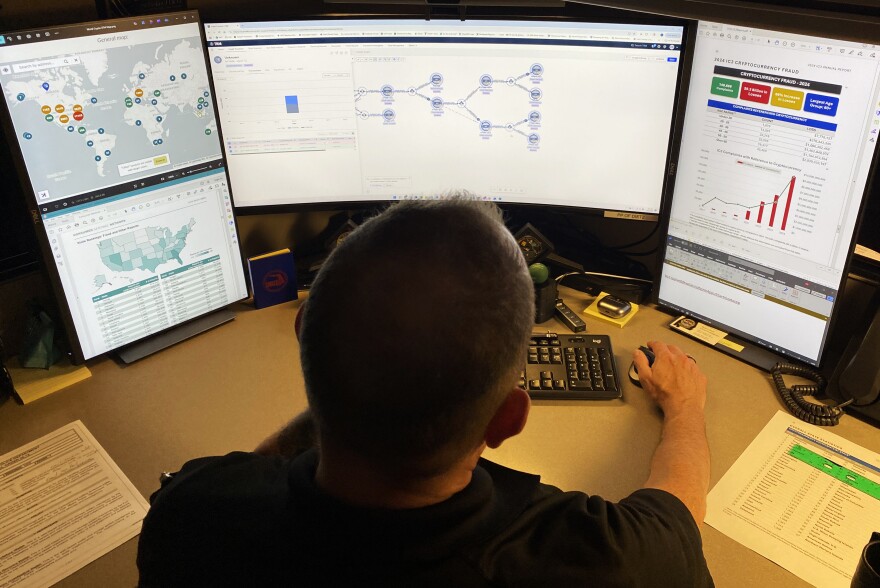
"I work with my partners with other agencies and we're all trying to play catch-up ... trying to rearrange our focus on this “virtual currency to where we can actually try to do something and help the victims," he said.
He spends a significant amount of time tracing crypto, a painstaking process with little chance of recovering the stolen cash or making an arrest.
“I’ve identified possible suspects in China, India, places I can’ t do anything about," he said.
Meantime, Dietz says he cannot emphasize enough his belief that crypto ATMs serve no legitimate purpose.
“It is my personal opinion, they are used for criminals and by victims," he said. "I personally think they should be banned.”
Dietz is working with the Fort Myers police chief to formulate a proposal for city leaders to hopefully regulate crypto ATMs in the city, including restricting the amount of cash that can be deposited per day by a person. Some of the crypto ATMs allow up to $50,000 dollars a day to be deposited.
Unequal ratio
Deitz says a world map of the locations of crypto ATMS reveals a startling comparison.
Dietz says the majority, at least 34,000 crypto ATMs are in the United States. The city of Fort Myers alone has 30 which is 10 times the number of crypto ATM machines located in the countries of India, Russia, and China combined. He believes that is because they serve criminal activity and victims getting scammed.
States like Vermont, Nebraska and Colorado enacted laws to regulate crypto ATMs due to fraud. Spokane, Washington, and Sweetwater, Minnesota, have now banned them altogether. A city in Michigan is banning crypto ATMs proactively, not even allowing them to be installed.
Additionally, a bill to regulate crypto ATMS in Florida was introduced this legislative session but died in June in committee. A measure is also working its way through Congress to regulate and crack down on crypto ATMs nationwide.
WGCU is your trusted source for news and information in Southwest Florida. We are a nonprofit public service, and your support is more critical than ever. Keep public media strong and donate now. Thank you.

